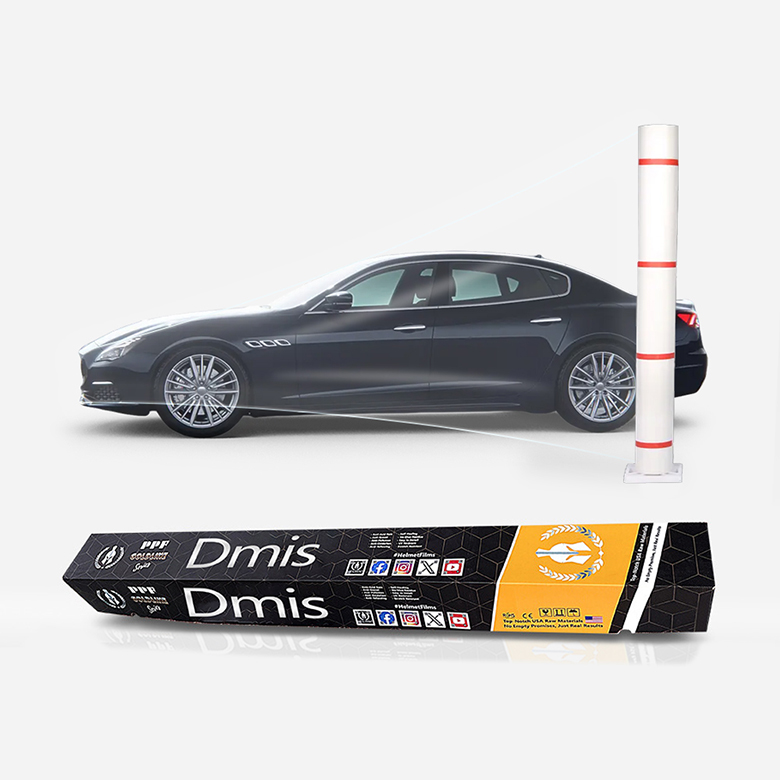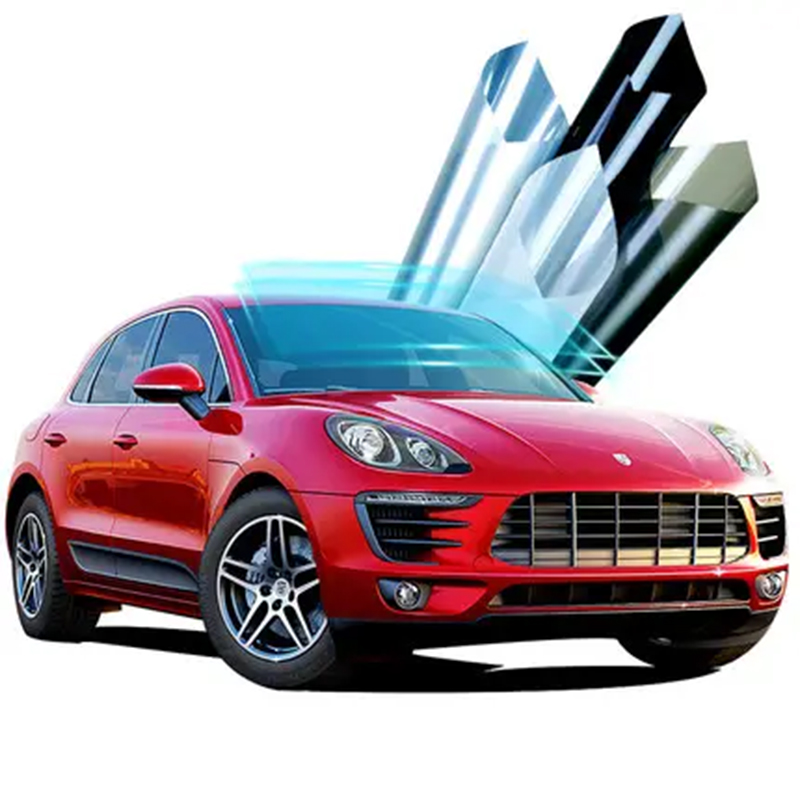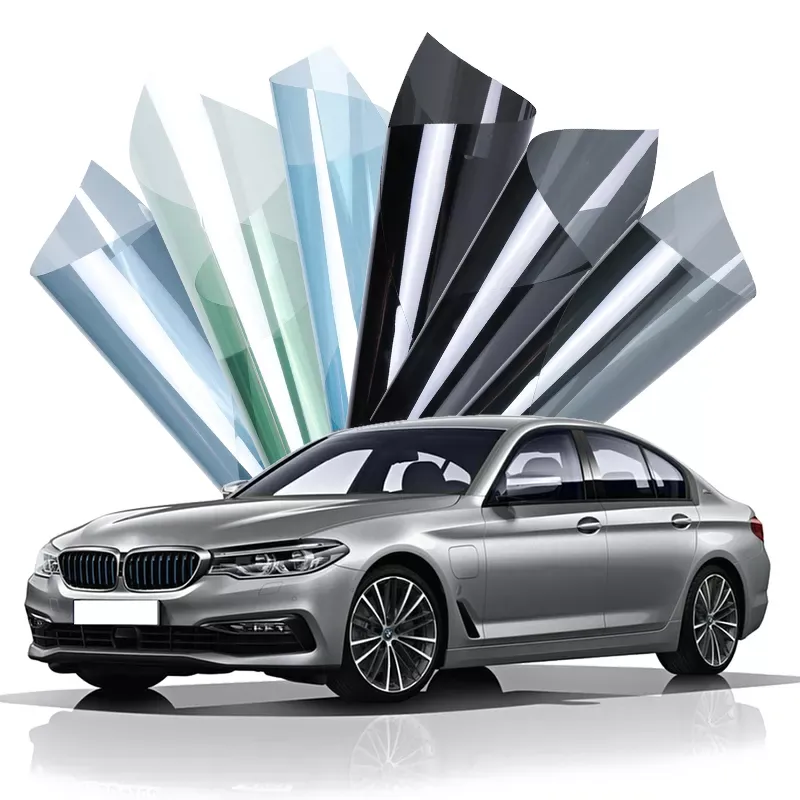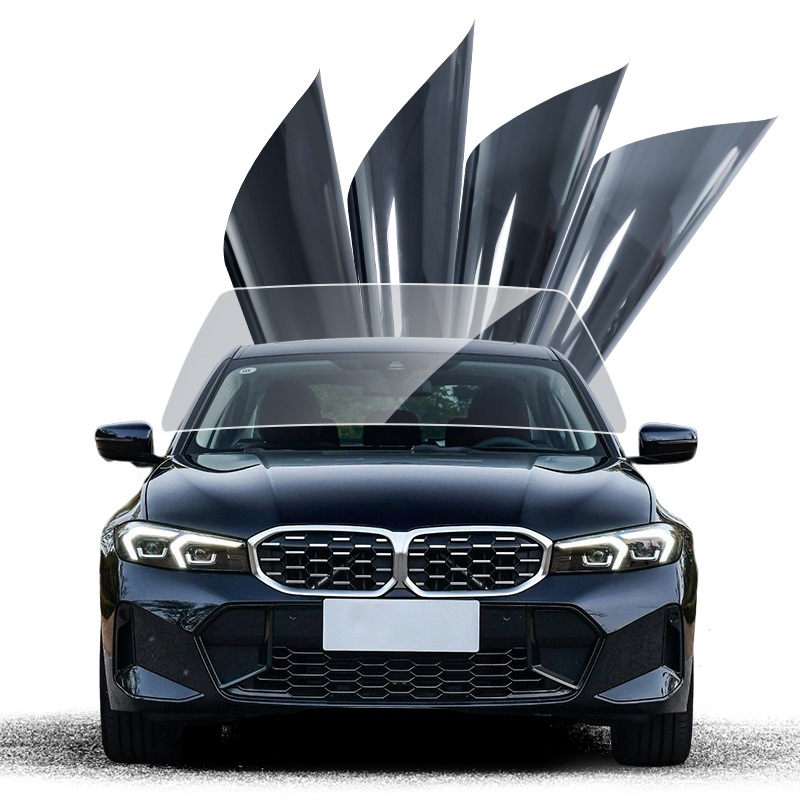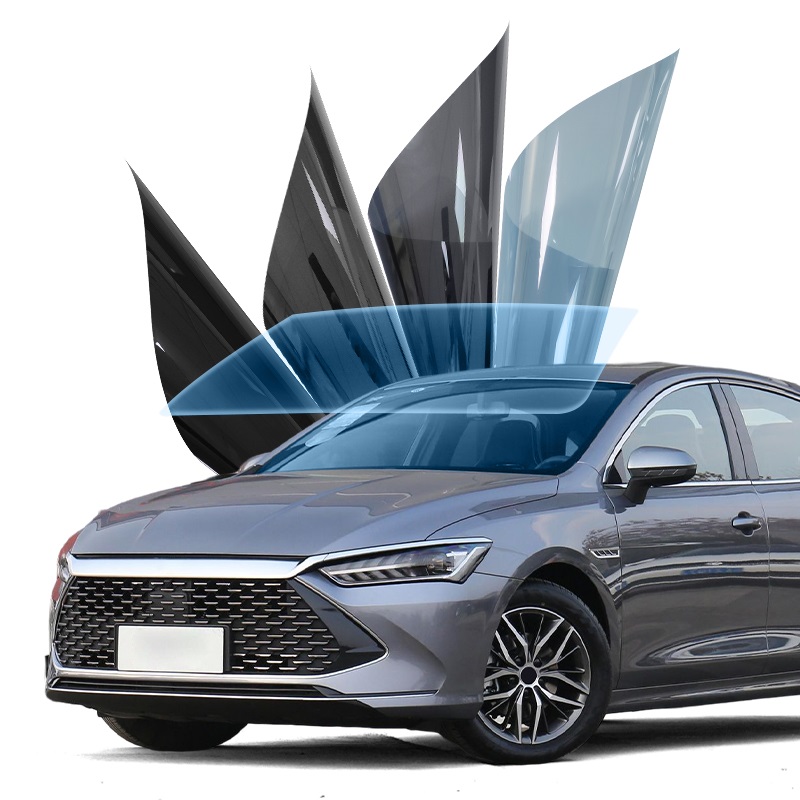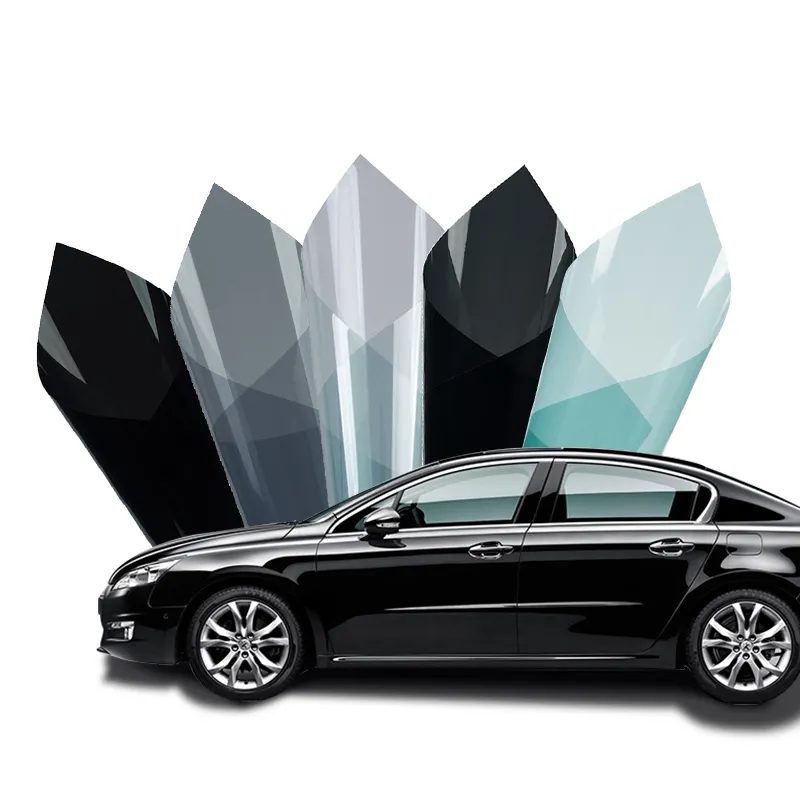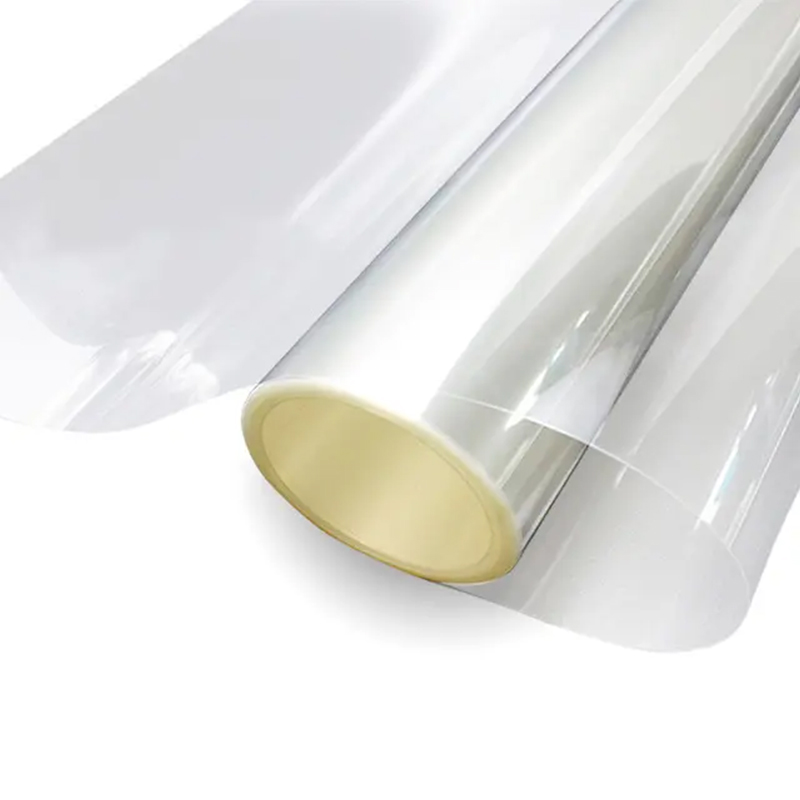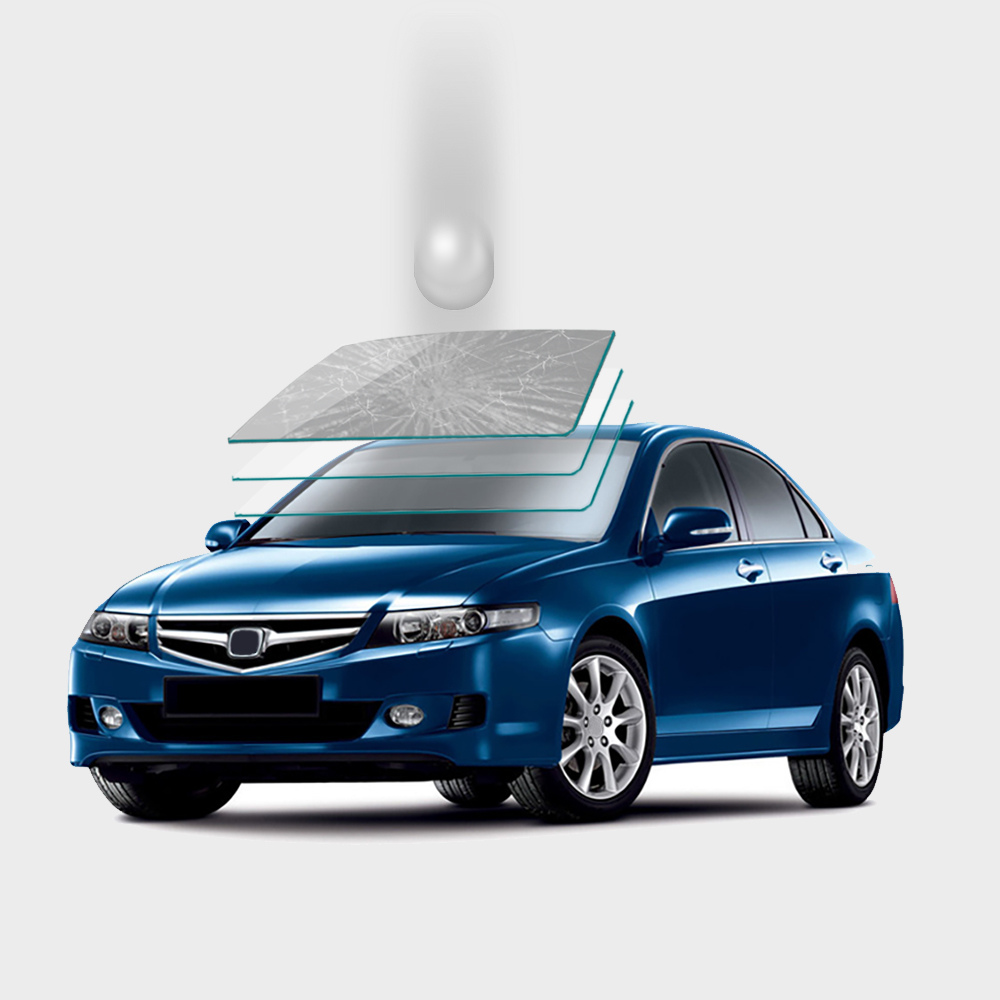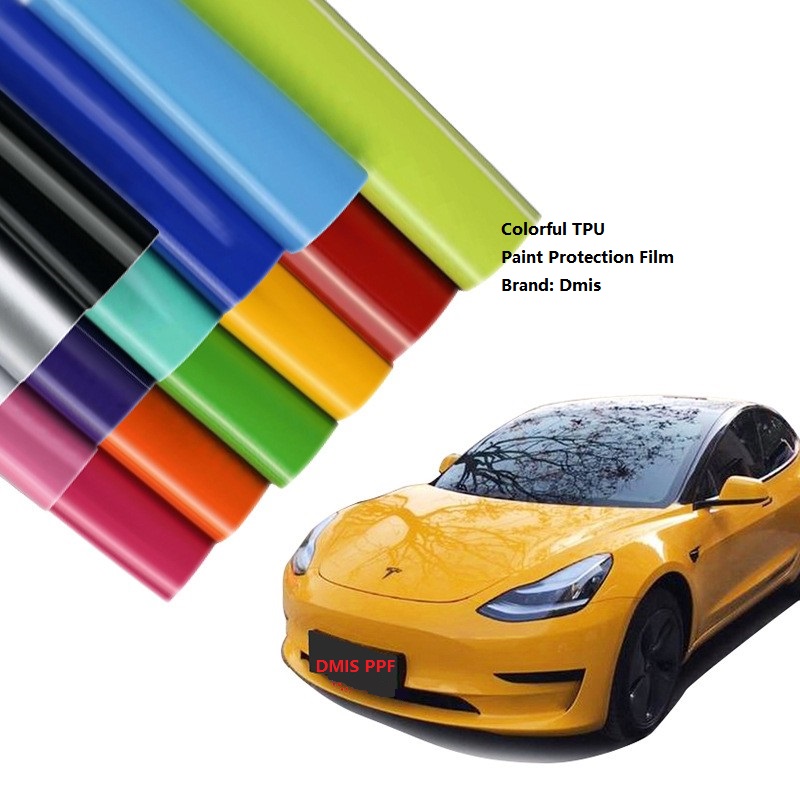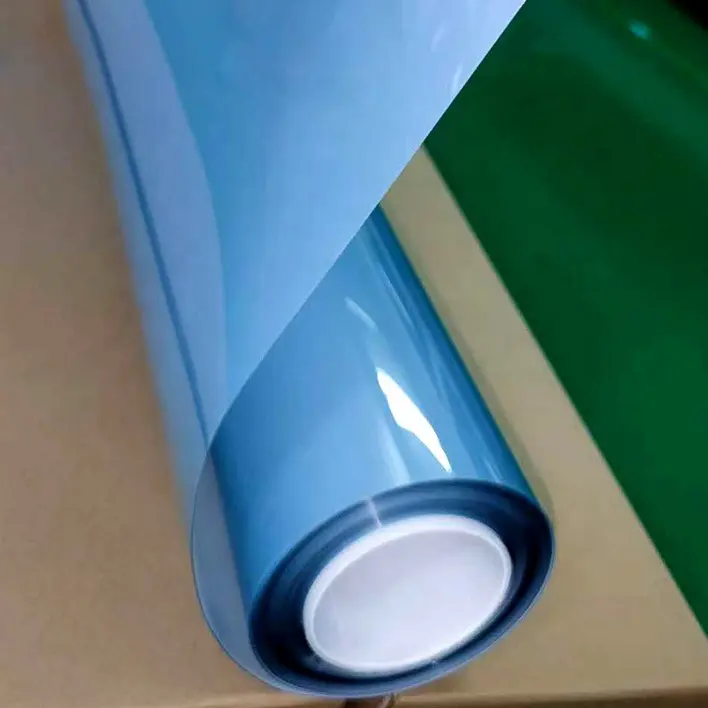Can Car Window Film Block UV rays?
In modern car life, car window film has become one of the must-have choices for many car owners. It not only improves the appearance of the vehicle, but also provides a variety of practical functions for car owners. Among them, ultraviolet (UV) blocking is an important function of car window film. So, can car window film really block UV rays effectively? This article will explore the UV blocking ability of car window film in depth, as well as related technical details and selection recommendations.

1.Basic concept of car window film
Car window film is a film that is attached to the glass of the car, usually made of plastic or other synthetic materials. Its main purpose is to provide privacy protection, reduce the intensity of sunlight, improve the impact resistance of the car window, and beautify the appearance of the vehicle. There are many types of car window films, including transparent films, colored films, reflective films, etc., each of which has its specific functions and advantages.
2.Hazards of ultraviolet rays
Ultraviolet rays (UV) are the invisible part of sunlight, which has a profound impact on human health and materials. Prolonged exposure to UV rays may lead to skin cancer, skin aging, eye damage and other problems. In addition, UV rays will accelerate the fading and aging of materials in the car (such as seats, dashboards, etc.), affecting the comfort and service life of the car environment. Therefore, effectively blocking UV rays has become an important consideration in the design of car window films.
3.UV blocking ability of car window films
Different types of car window films have different UV blocking effects. Generally speaking, the UV blocking ability of car window films can reach the following aspects:
1. UV Protection Film: This film is specially designed to block UV rays and can usually block 99% or more of UV-B and UV-A rays. It absorbs or reflects UV rays by adding specific chemicals to the material of the film, thereby effectively protecting the owner and the materials in the car.
2. Tint Film:Tint films mainly reduce the amount of sunlight transmitted by adding dyes to the film, thereby reducing the light intensity in the car. Although tint films are generally less effective than UV protection films in blocking UV rays, many high-quality tint films can still provide a certain degree of UV protection.
3. Metalized Film:This film reflects sunlight, including UV rays, by embedding metal particles in the film. Metallic films generally have good UV blocking capabilities, but may affect the signal reception of the car window, such as GPS and mobile phone signals.
4. Ceramic Film:Ceramic film is a high-end car window film that uses ceramic particles to improve UV blocking capabilities and reduce light transmission. Ceramic film not only effectively blocks UV rays, but also has high heat resistance and abrasion resistance, and is usually the first choice for car owners.
4.Choose the right car window film
Choosing the right car window film requires considering the following factors:
1. UV blocking performance: Make sure the car window film you choose has sufficient UV blocking capabilities. You can check the product description or consult a professional to confirm the UV blocking rate of the film.
2. Car owner needs:Choose the right car window film according to your personal needs. If you are mainly concerned about UV protection, you can choose UV protective film; if you value privacy protection and aesthetics more, dyed film or metal film may be more suitable.
3. Regulatory requirements:Different regions have different regulations on the transparency and color of car window films. When choosing car window films, you need to ensure that they comply with local laws and regulations to avoid legal problems.
4. Professional installation:High-quality car window films require professional installation to achieve their best results. Improper installation may cause problems such as bubbles and warping, affecting the effect of the film and the beauty of the car windows.
5.Maintenance and care of car window films
After installation, car window films require certain maintenance and care to ensure their effectiveness and life. Here are some maintenance suggestions:
1. Avoid contact with chemicals: When cleaning the car windows, avoid using strong acidic or alkaline detergents to avoid damaging the surface of the film. Use a mild detergent and soft cloth for wiping.
2. Avoid high temperature exposure:Try to avoid exposing the car window film to the sun for a long time in a high temperature environment to prevent the material of the film from aging and discoloring.
3. Regular inspection: Regularly check the status of the car window film. If problems such as warping and falling off are found, they should be repaired or replaced in time.
6.Market prospects of car window films
As people pay more attention to the health of car owners and the comfort of the car interior, the car window film market is also developing. In the future, car window films will pay more attention to UV blocking performance and environmental protection, and more high-tech materials and innovative technologies will be applied to the production of car window films.
7.Summary
Car window films can effectively block UV rays, protect the health of car owners and the life of car interior materials. When choosing a suitable car window film, you need to consider its UV blocking ability, personal needs, regulatory requirements, and professional installation. Through scientific and reasonable selection and maintenance, car window films can provide car owners with a more comfortable and safe driving experience.


